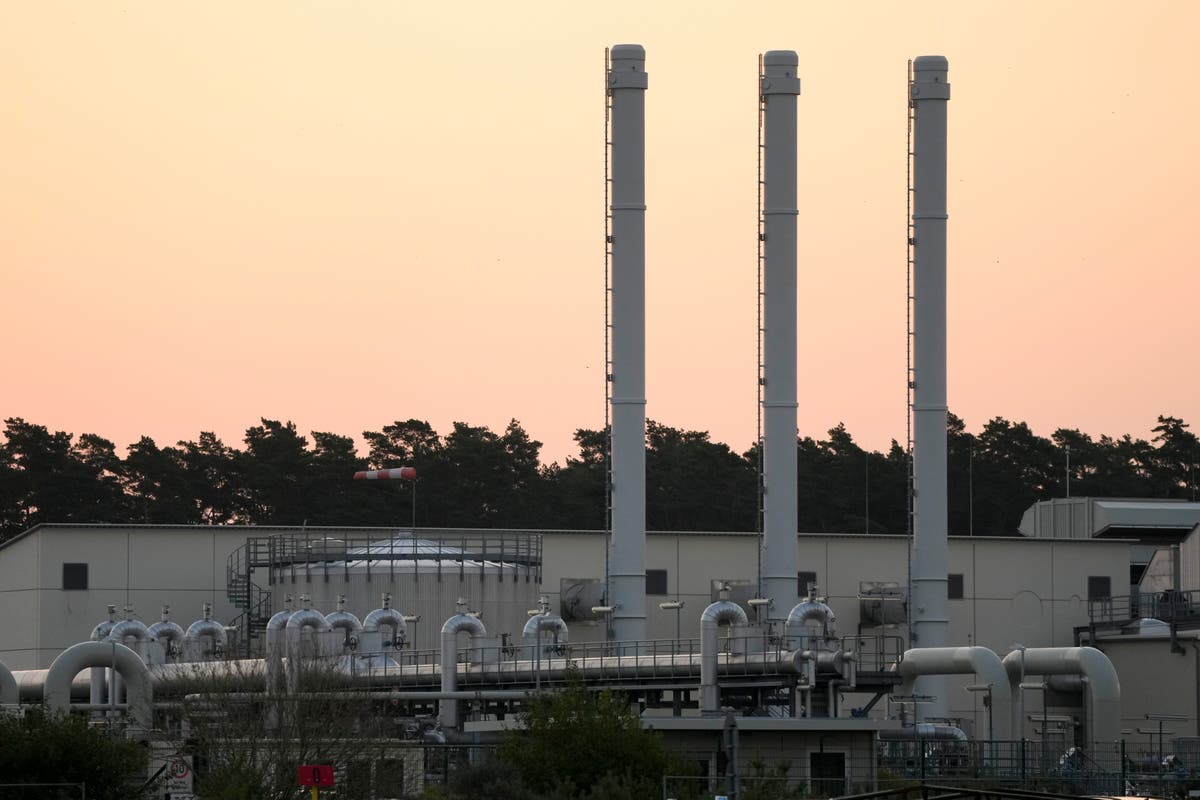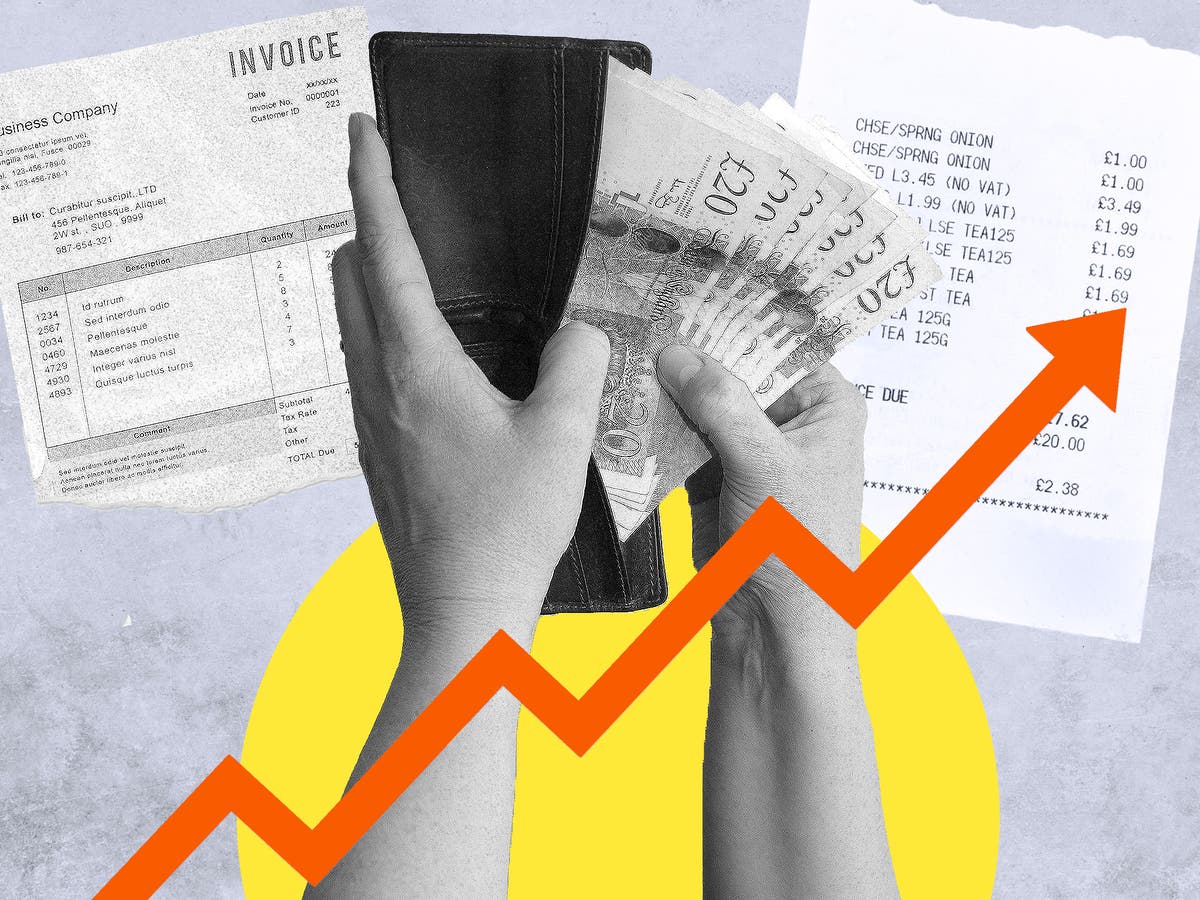Cost of living – live: Borrowing money to pay energy bills could ‘spark housing crisis’
Oil and gas companies report landmark earnings as households crippled by price caps
Borrowing huge amounts of money to pay people’s energy bills could spark a housing crisis, George Eustice has warned.
The environment secretary was asked on Sky News about Rishi Sunak’s plan to help people with their energy bills.
Mr Eustice said: “The problem with borrowing huge amounts of money to pay people’s energy bills is you really risk fuelling the inflationary pressure that we are already seeing.
“We have got to get inflation back under control because if we don’t get it back under control, then interest rates will rise, people’s mortgage rates will go up, and we risk a housing crisis.”
The environment secretary said inflation is a “global phenomenon” adding: “We’re never going to be able to pay everyone’s energy bill in its entirety. This is a consequence of the pandemic.”
It comes as oil company Shell reported record profits of $11.5bn, doubling its earnings in a single year while British Gas owner Centrica has seen operating profits increase five-fold to £1.34 billion as energy bills soar.
Shop prices rise at fastest pace on record as retailers pass on massive cost increases
Shop prices are rising at their fastest pace in at least 17 years, as retailers passed on huge cost increases to consumers, according to new figures.
Prices rose 4.4 per cent in July, with food prices jumping 7 per cent, the British Retail Consortium found. It was the fastest pace of price increases since the BRC began compiling figures in 2005, Ben Chapman writes.
Staple items including butter and vegetable oils saw some of the biggest price hikes after producers were hit by huge rises in the cost of energy, fertiliser and transport, exacerbated by the war in Ukraine.
McDonald’s became the latest big-name company to announce price increases, putting up the cost of a cheeseburger for the first time in 14 years this week.

Shop prices rise at fastest pace on record with
Energy bills set to hit £500 a month in January as Russia squeezes European gas supplies
Energy bills are set to triple as British households face an “almighty hit” to living standards, economists have warned.
Vulnerable households could face an average bill of £500 for energy in January 2023, with a prediction of an annual price cap of £3,850, far exceeding already gloomy predictions for rising bills made earlier this year.
The forecast, by utilities consultancy BFY Group, came as Russia took further steps to slash its gas supplies to Europe, strangling the market even further.
The country has drastically reduced gas supplies to several European states since waging war on Ukraine. The bitter conflict has upped pressure on global food, petrol and domestic energy costs.
Our economic editor Anna Isaac has more:

Energy bills set to hit £500 a month as Russia squeezes gas supply
‘Kick out the profiteers,’ Labour MP says in response to record profits for energy companies
Labour MP Jon Trickett has criticised shareholders for “laughing all the way to the bank whilst workers and consumers suffer”.
The MP for Hemsworth tweeted: “There’s a clear solution with public support: Kick out the profiteers, take energy into public ownership for the benefit of all.”
Cost of living crisis 2022: How to cope with the rise in prices
It feels like Britons have jumped out of the pan, only to fall straight into the fire as a major cost of living crisis grips the nation just as Covid-19 appeared to have abated.
With the average cost of a full tank of petrol exceeding £100 for the first time this year and totals at the till creeping up with each weekly shop, millions of people have faced an “eat or heat” choice – forced to choose between giving up a meal or heating their home.
According to the Office for National Statistics (ONS), around nine in 10 (87 per cent) of adults in Britain have reported their cost of living increased in March alone, with rising energy prices fuelling the surge.
Read on to find out how to cope with the rising prices:

How to cope with the rising cost of living
Boris Johnson takes a swipe at Sunak for saying he would cut VAT on energy bills
Boris Johnson took a thinly veiled swipe at his former chancellor Rishi Sunak for announcing he would cut VAT on energy bills.
Speaking about the future prime minister, Mr Johnson said: “I’ll give you this assurance, they will continue with the same programme, cutting taxes, simplifying regulation as much as possible, taking advantage of all our new regulatory freedoms, getting rid of every encumbrance from solvency to MiFID to VAT on fuel - turns out to be easier than we thought.”
Borrowing ‘huge amounts of money risks fuelling inflationary pressure,’ Eustice warns
Borrowing huge amounts of money to pay people’s energy bills could spark a housing crisis, George Eustice has warned.
The Environment Secretary was asked on Sky News about Rishi Sunak’s plan to help people with their energy bills.
Mr Eustice said: “The problem with borrowing huge amounts of money to pay people’s energy bills is you really risk fuelling the inflationary pressure that we are already seeing.
“We have got to get inflation back under control because if we don’t get it back under control, then interest rates will rise, people’s mortgage rates will go up, and we risk a housing crisis.
“So we have got to be responsible as we approach this and that’s why I think the approach he has taken, which is to make the right intervention at the right time, an initial scheme in the spring that was proportionate to the challenge we had then, an expansion to have much more money for those on the lowest incomes announced a month or so ago, and now today, a further step to help everybody with those cost of energy bills - it’s the right thing to do.
“We’re never going to be able to pay everyone’s energy bill in its entirety. This is a consequence of the pandemic. It’s a global phenomenon.”
More reaction from businesses on energy companies’ profits
With news breaking that energy giants Centrica and Shell have both announced profits worth billions of pounds as the UK faces crippling energy hikes, Oliver Holmes, Head of Operations at Business Energy Claims (energy and legal experts helping businesses to recover losses from energy mis-selling) has commented:
“It is disappointing to see that O&G giants are making significant profits across the board, whilst the average person and SMEs are suffering with the ongoing cost increases.
“As energy mis-selling experts, our main concern is how the price cap can be increased by such a level that allows billions in net profit to be made? What is worse is that businesses are not protected by a cost cap and will continue to see prices rise without government intervention,” he added.
Banks ask government to pay £1 in every £9 for Covid loans
Banks have claimed around £1 in every £9 that they lent out to businesses during Covid from the Government, new figures show.
The Department for Business, Energy and Industrial Strategy revealed on Thursday that £9 billion has so far been paid out to cover loans that have gone bad.
The data is still provisional and the final figures are likely to show much higher numbers.
By some estimates the Government might have to pay out to cover nearly 40% of the £77.1 billion that was lent during the pandemic.
During the early days of Covid-19, the Government launched three loan schemes to help out businesses as many were forced to close because of lockdowns.
Billions of pounds were paid out by banks.
To speed up the loans and to encourage banks to give them out, the Treasury said it would pay up if the businesses were unable to.
It would cover 80 per cent of the Coronavirus Business Interruption Loans and Coronavirus Large Business Interruption Loans, and 100 per cent of the Bounce Back Loans, which were designed for smaller businesses.
Jacob Rees-Mogg says we need to extract ‘as much as possible’ from North Sea oil fields
Jacob Rees-Mogg has said “we need to be extracting as much as we possibly can from our North Sea oil fields”.
The Cabinet Office minister was asked on the BBC Radio 4’s World At One programme whether the extraordinary profits that energy companies have made should be redistributed given the pain many households are feeling on energy.
Mr Rees-Mogg replied: “I think what we need to be doing is getting more gas out of the ground, we need to be extracting as much as we possibly can from our North Sea oil fields.
“And we need to extract shale gas from the United Kingdom because if you have a strong domestic market you are less affected by the international price, which has been the experience of the United States, and you also increase energy security.
“If that is going to happen, it’s going to need investment by the energy companies, and investment is going to be much less likely if you apply retrospective taxes to them.”
On energy companies restarting dividends, he said: “Dividends go to the people in the companies who are individuals or their representative pension funds, so I think hostility to dividends is not a wise economic policy.”
‘Their greed before your need’: Zara Sultana hits out at energy companies
Zara Sultana MP has criticised energy and gas companies for their significant climb in profits while millions of households in the UK face fuel poverty.
She posted on Twitter: “This isn’t a coincidence: The system is rigged to put their greed before your need.”
See the full tweet here:



Join our commenting forum
Join thought-provoking conversations, follow other Independent readers and see their replies
Comments